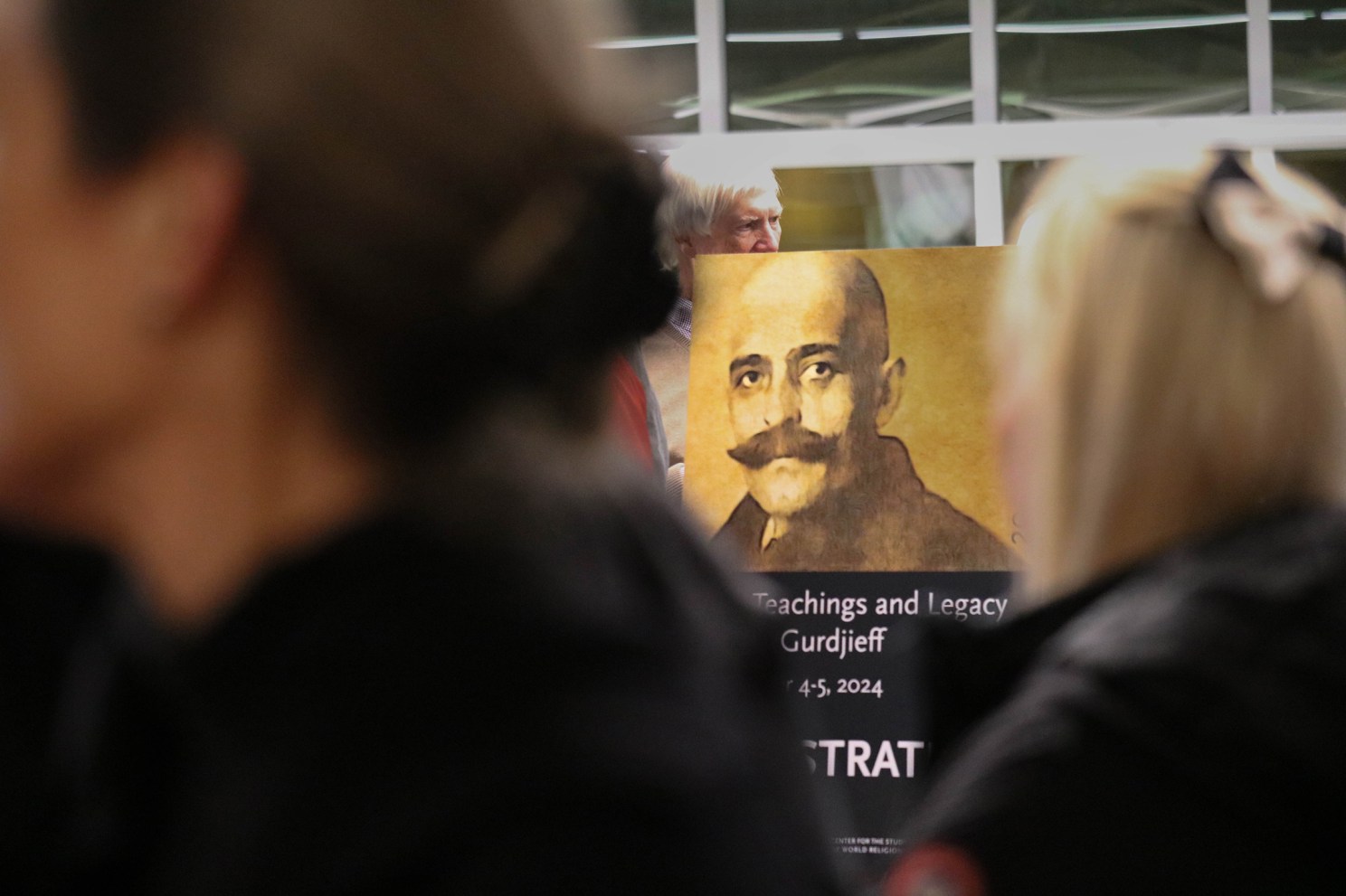Exploring the legacy of G.I Gurdjieff: Harvard’s global summit marks 100th anniversary

Attendees arrive at the Harvard University Science Center for the opening of the Gurdjieff Conference.
Photo by Ashley Zigman
Harvard’s Center for the Study of World Religions invited the world to a two-day groundbreaking summit on the life and work of 20th-century mystic and spiritual teacher George Ivanovich Gurdjieff, and thousands of scholars, practitioners, and the curious from around the globe responded.
On Dec. 4 and 5, more than 300 people from as far as Europe, South America, and the United States attended the conference at the Harvard Divinity School in person, while more than 2,000 people from 40 countries watched online. The conference, the largest of its kind and marking the 100th anniversary of Gurdjieff’s visit to Harvard University in 1924, featured leading scholars, academics, and representatives from the Gurdjieff Foundation and independent centers.
“This 100-year anniversary gives us the occasion, maybe even the mandate, to reflect on G.I. Gurdjieff’s long legacy and how it has grown and evolved since 1924 and influenced so many other movements, social, spiritual, and creative,” said Charles Stang, director of the Center for the Study of World Religions and professor of Early Christian Thought at the Harvard Divinity School, in his opening address.
Gurdjieff (c. 1866-1949) was a Greek-Armenian mystic, spiritual teacher, composer, and dance teacher who led an international movement to awaken people to higher consciousness and humanity. His visit to Harvard was part of a tour of U.S. cities, including New York, Boston, and Chicago, to perform “demonstrations” of sacred dances and music.
The worldwide Gurdjieff movement continues today, with members of the Gurdjieff Society of Massachusetts, the Gurdjieff Foundation of New York, and the Institut G.I. Gurdjieff in Paris partnering with the CSWR on the conference. The event’s focus was to provide a greater understanding of the movement, its teachings, and its followers and to provide a forum for discussion between scholars and practitioners.
Visiting Scholar Carole M. Cusack, a professor of religious studies at the University of Sydney in Australia, partnered with the CSWR to host the international conference and help bring together Gurdjieff communities that rarely interact.
“I think we are making history,” she said. “Even if only 10 percent of people in attendance take away something that changes the way they think, the way they want to live, the things they want to devote themselves to, then we will have succeeded.”
Gosia Sklodowska, executive director of the Center for the Study of World Religions at Harvard Divinity School, said the conference resulted from two years of meticulous planning, including public Gurdjieff dance workshops and reading groups.
“I believe that all of us here today awoke to Gurdjieff’s teachings and share the commitment to go beyond the superficial, the sensational, and the habitual, delving deeply into The Work,” she said. “For many of our speakers and scholars, The Fourth Way is not merely a philosophy or curiosity but a way of life — a path to harmonious development for individuals and all of humanity.”





